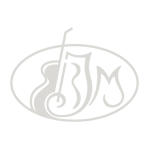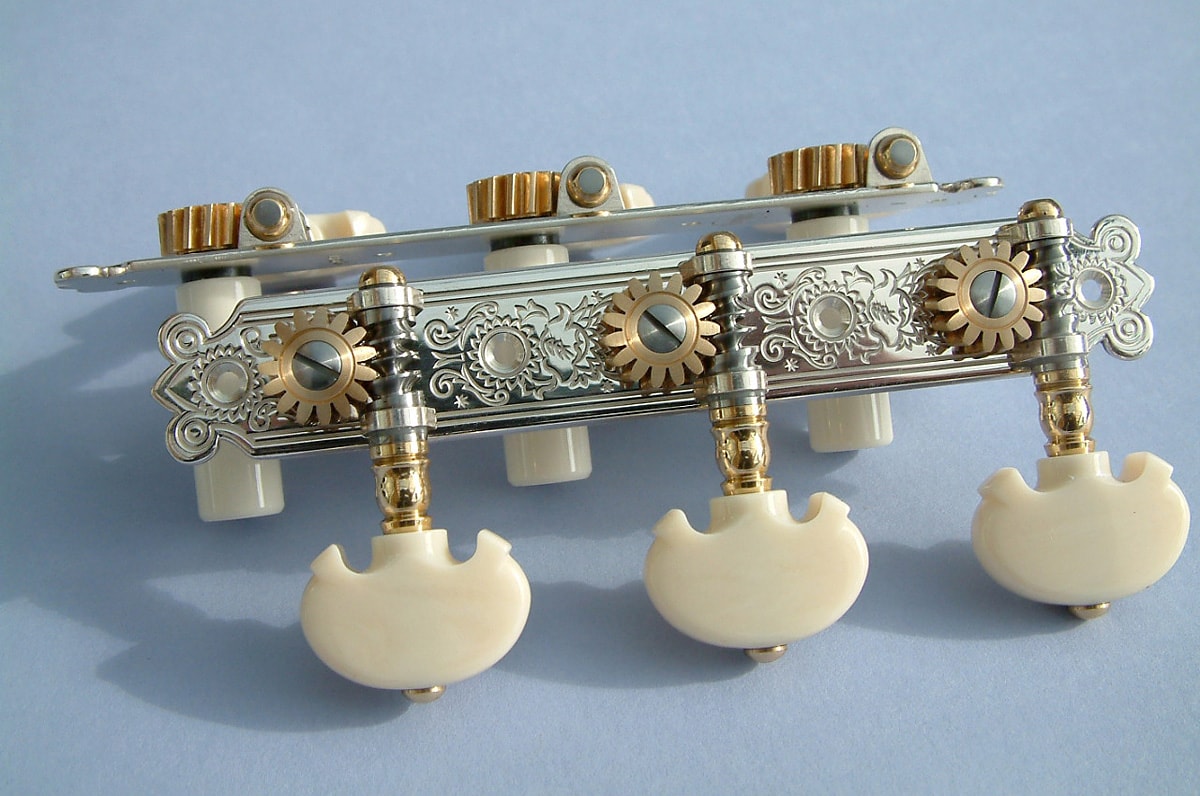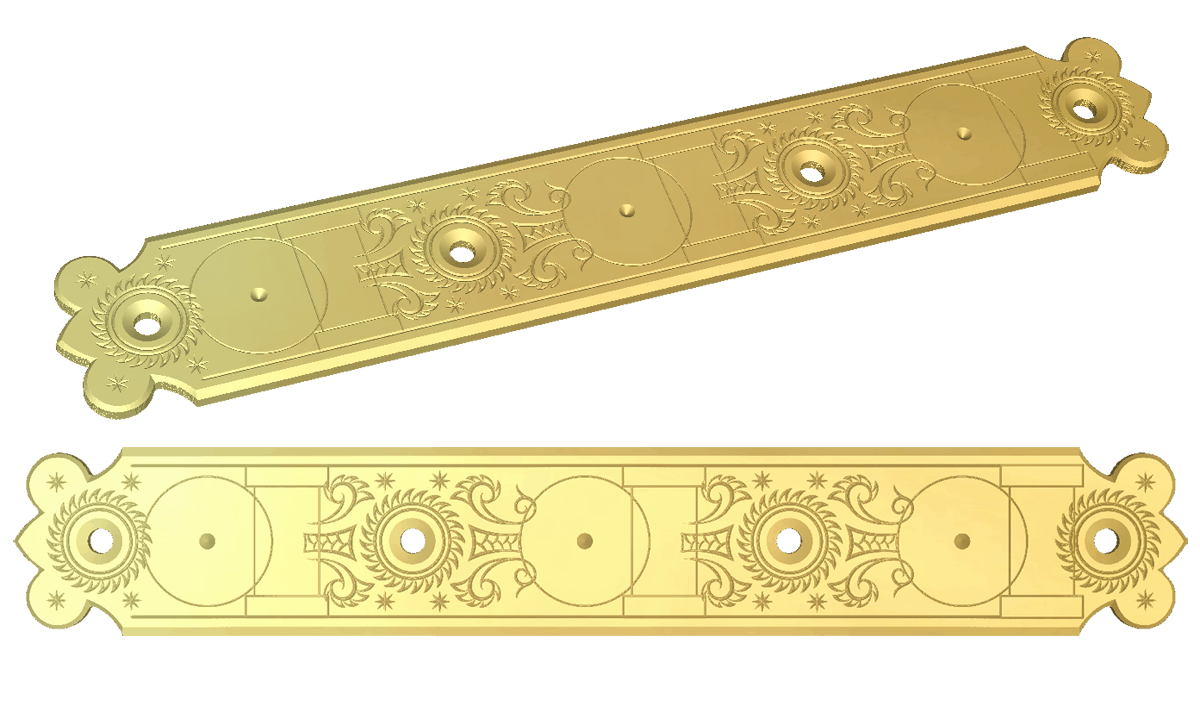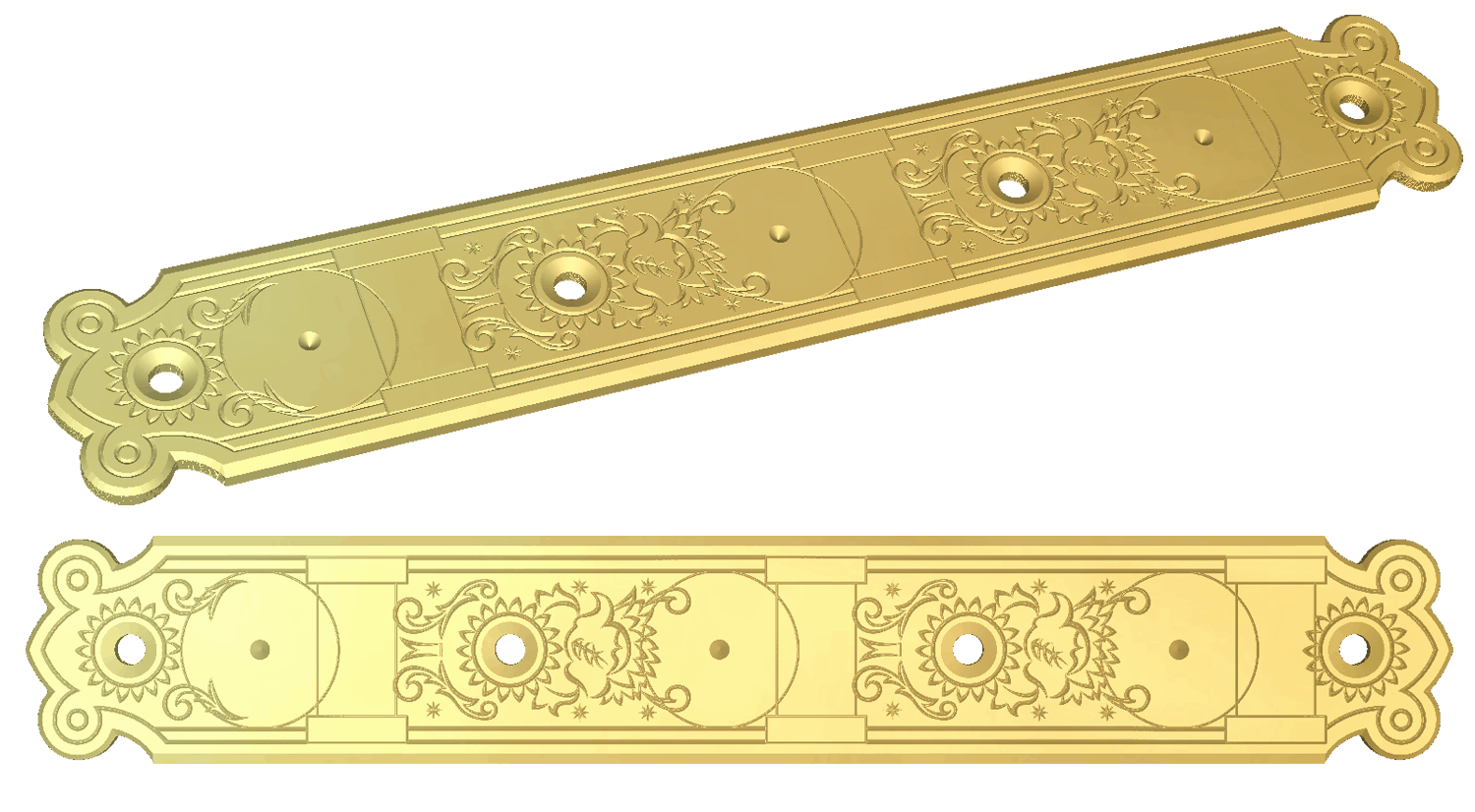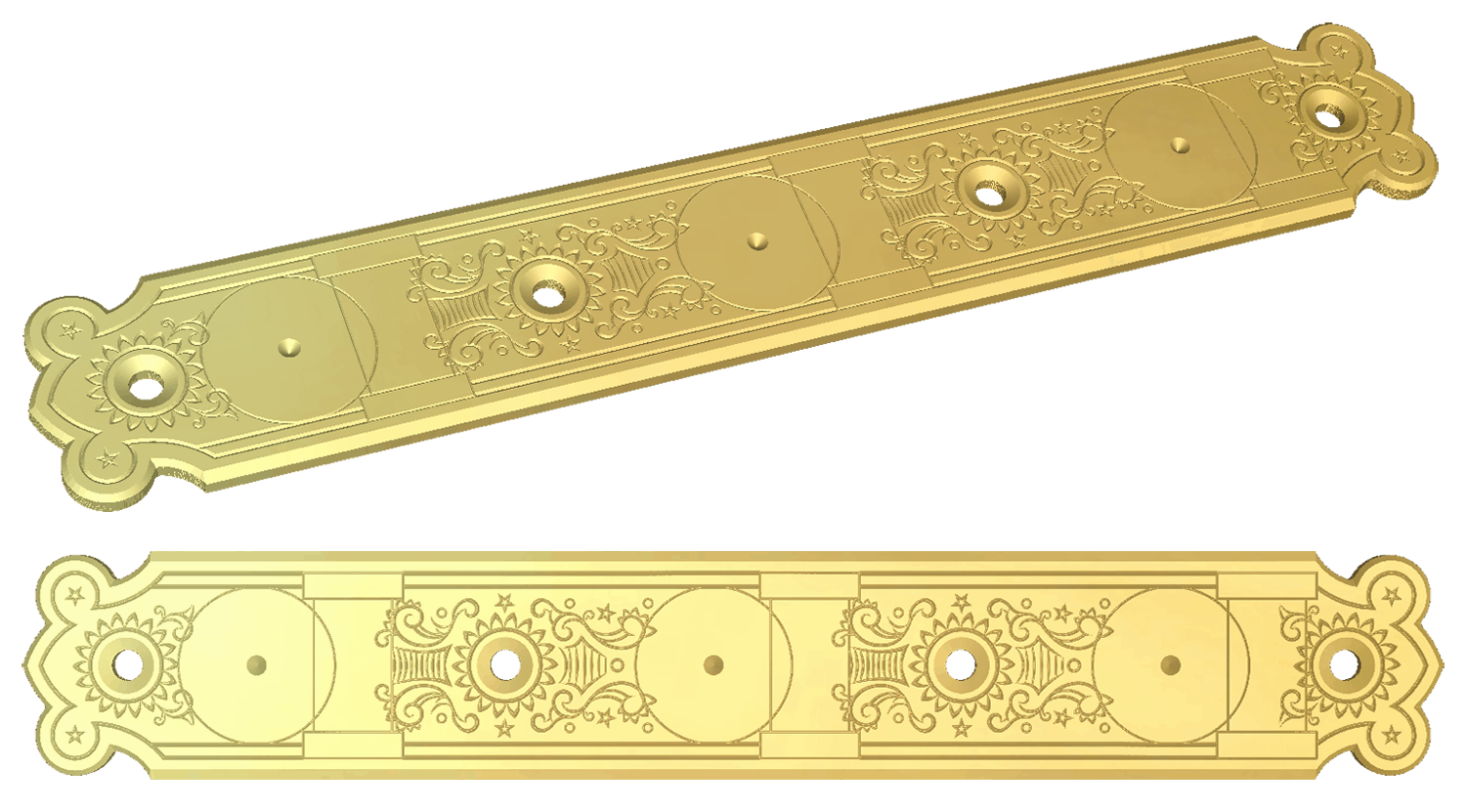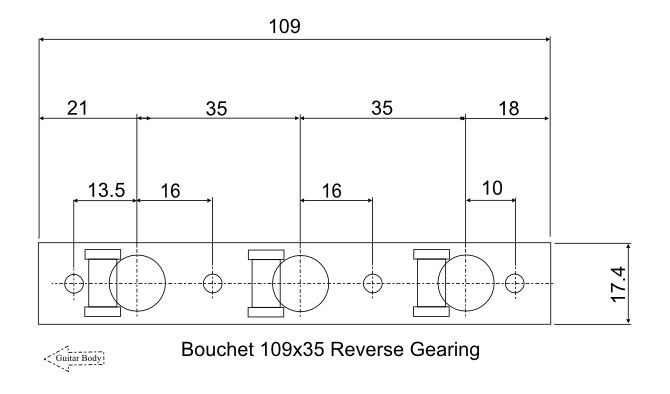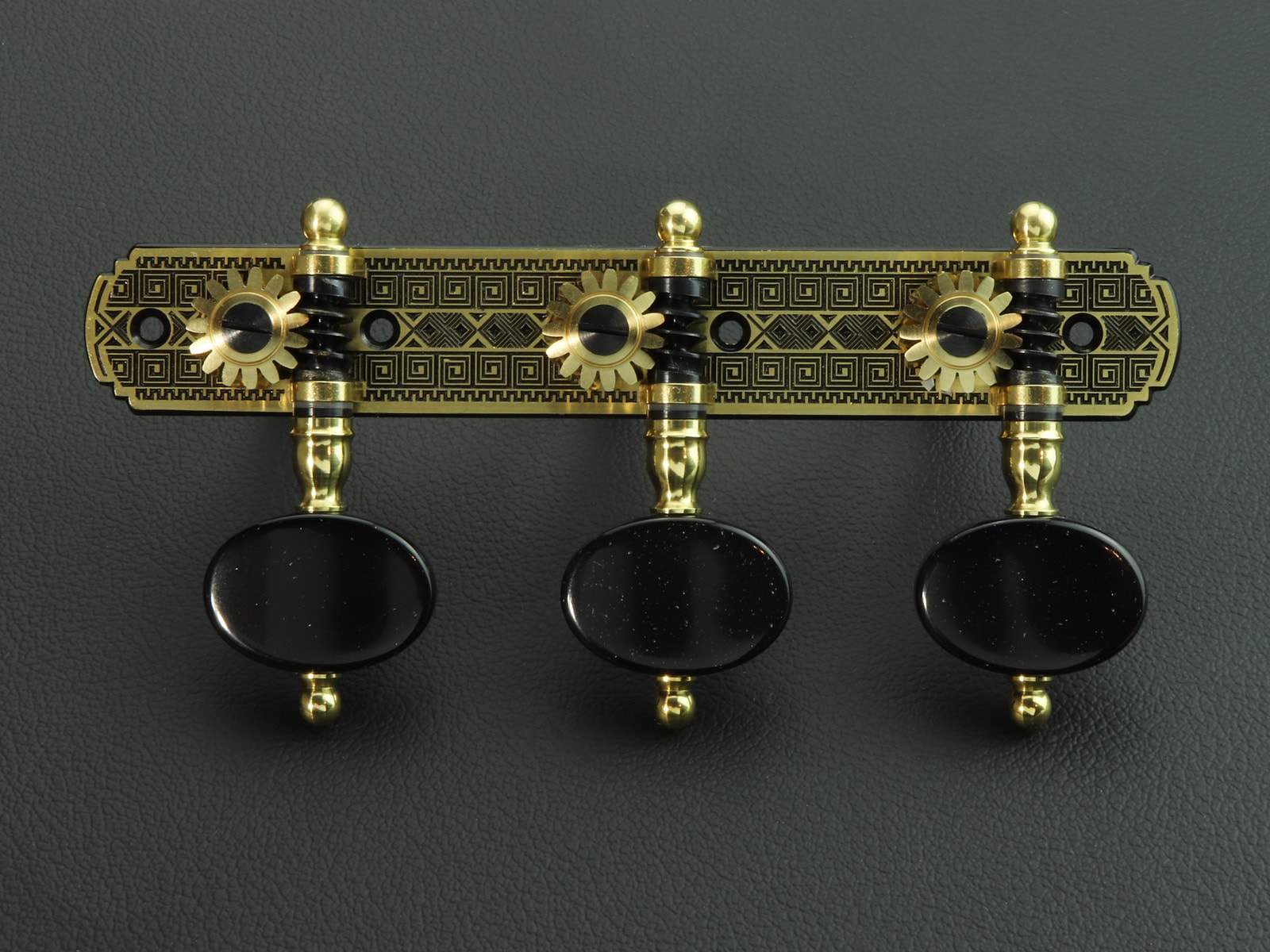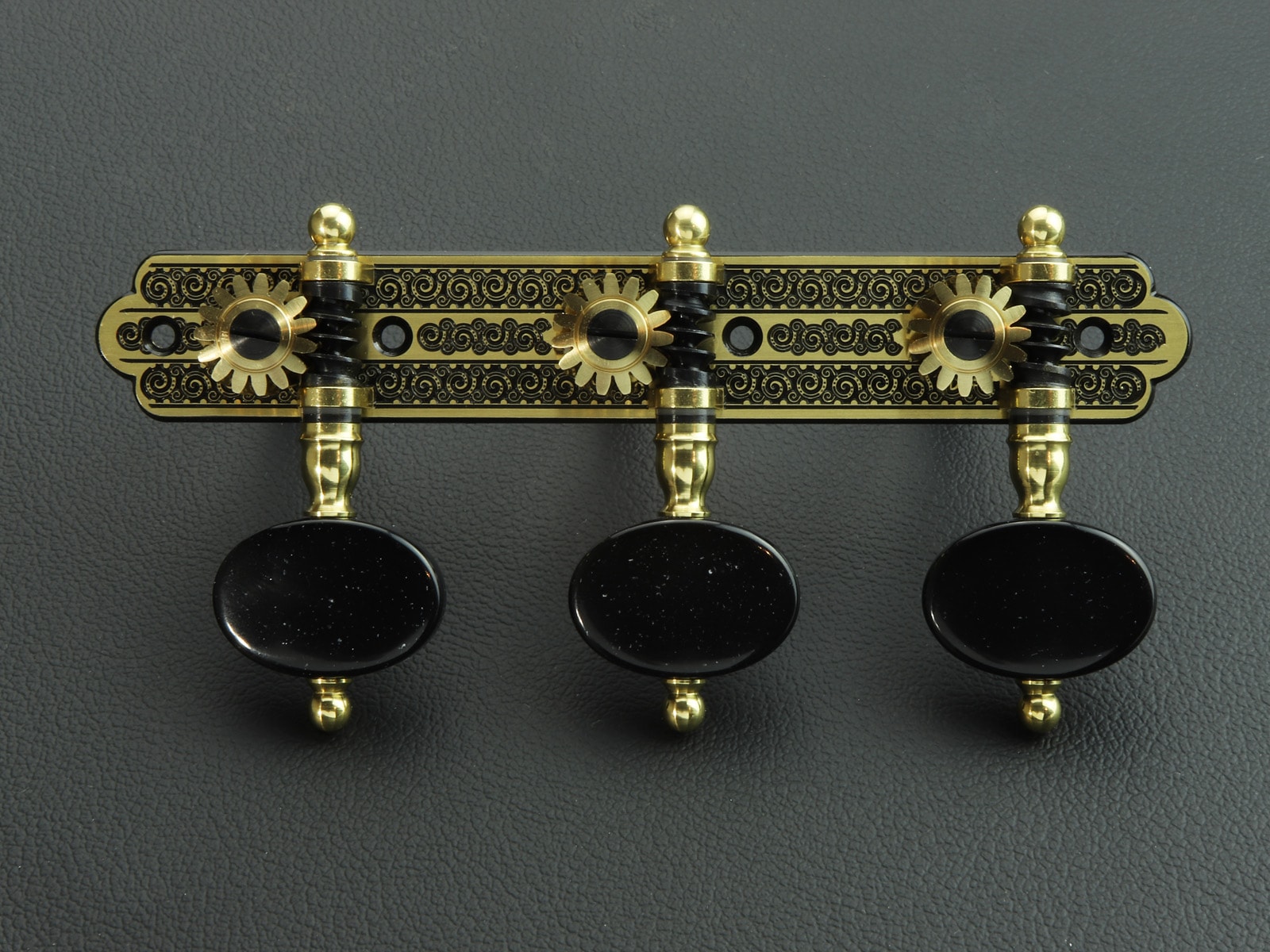Bouchet Style Tuners
Designed specifically for Bouchet guitars
Virtually all 150 guitars made by Robert Bouchet were fitted with a particular style of tuner. These instruments are now rare and highly prized possessions. The tuners fitted to these guitars are now coming to the end of their useful life and to restore the guitar back to full condition while maintaining its value, we offer this particular model of tuner specifically for these instruments.
Side-plates
All Bouchet tuners at made from Sterling Silver. However this is not a requirement of design, simply one of authenticity. If you prefer nickel silver or brass, this is fine too. We have three engraved designs taken from original Bouchet tuners, please see the images below.
Gearing
All Bouchet original tuners used ‘reversed gearing’. Reverse gears are where the gearing is cut in the opposite direction and built with the gear (worm wheel) above the button shaft (worm). The button will maintain the same direction of rotation to tighten or loosen the strings.
Using the image to the right for an example, we are looking at the bass half with the guitar body to the right. With modern tuners, this would be the treble half. However, you will notice that the thread direction of the gears is reversed.
Plate dimensions
Plate Dimensions have so far always been the same. Please check this against your instrument before ordering a set.
Buttons
The buttons fitted to these sets were traditionally made of real ivory. We do not use this materials now but have a lovely synthetic alternative ivory available.
Buttons in this material are available in all buttons patterns, Oval, Cloche and Kidney. The latter two shapes are most common for these Bouchet guitars
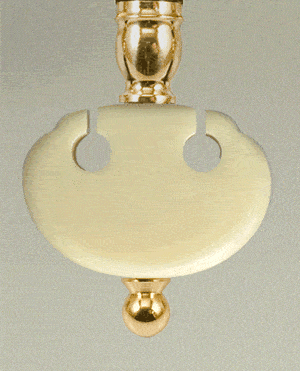
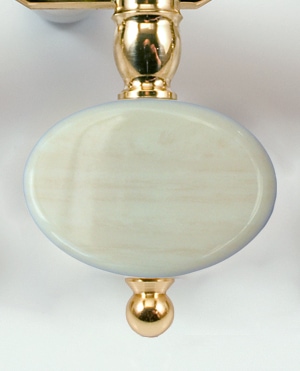
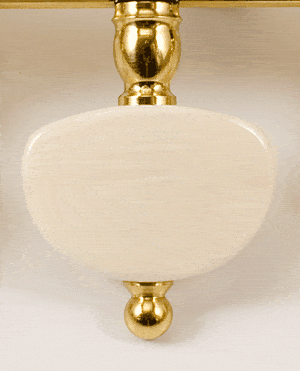
String rollers
String rollers are also non-standard.
Diameter: 9.4mm
Length: 27mm
String hole: 17mm (from back of side-plate)
By removing the original set, you will be able to check if yours is the same.
While the set is off the instrument, please check that the holes in the headstock are in good condition. Sometimes these holes in the wood can become ‘bell mouthed’ and elongated. If this is the case, then I would suggest that a good luthier is found to restore the holes to an accurate and round condition. Excess wear and poor operation will occur to any new set of tuners if the holes in the headstock are not in good condition.
